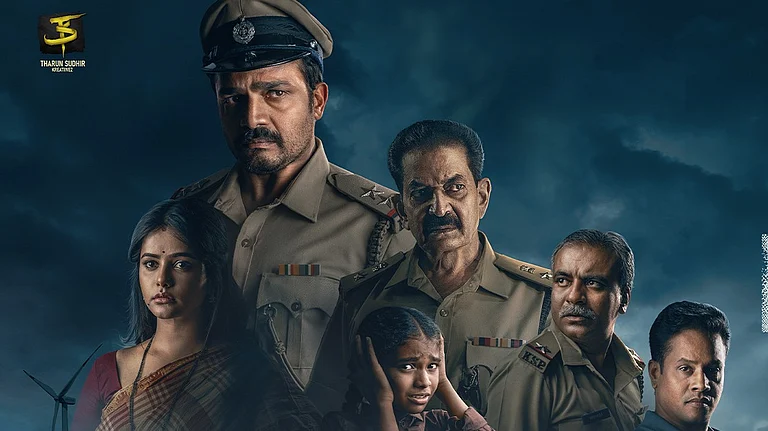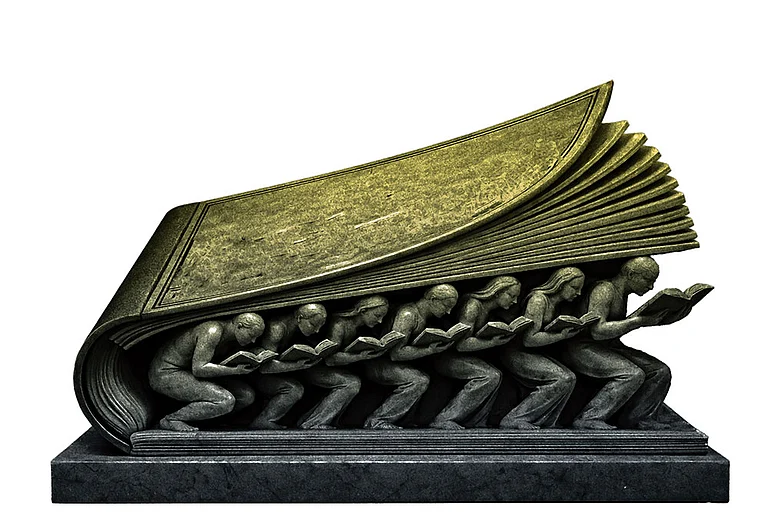I am a storyteller, not a scholar here. And we, as Amos Oz writes, are monsters born with our necks and faces turned forever towards the past. Even when we report on the present times. So, let me begin with a grand aunt called Supari Bua. This widowed woman with an indomitable spirit lived largely on charity from her natal family. She spoke only the Kumaoni dialect and kept deliberately out of everyone’s way in the manner of the poor and the powerless. But driven beyond endurance by a certain comment or gesture, she staged a dramatic protest. She’d put a supari (betel nut) in her mouth and fall silent, refusing to eat or even speak as long as the worried family did not intervene to set the wrong right.
It was, perhaps, from watching utterly powerless women like Supari Bua who, by sheer act of will, could bring power to its knees, that Gandhiji had forged the formidable weapon of non-violent mass protest. I dare say that by comparison, the modern methods of violent protest and suicide bombings, Supari Bua’s way makes the protestor a respectable moral person with whom you do not take liberties so easily. But it also has the genius of making those who crowd up social media with wild rantings against the protestors look like creatures of easy virtue.
A nation long trampled by despotic regimes, where millions of rural poor tilling the soil and their counterparts in urban centres are treated like objects, looks for shelter. It needs to wall itself off yet be a visible mote in the eye of the rulers. And what better shelter than Gandhi’s non-violent dharna out in the streets leading to the seat of power, Delhi? As women and students in Shaheen Bagh first staged the dharna, they regained a lost security in age-old customs: of feeding each other, tending to the sick, rocking babies to sleep and singing songs of worship and camaraderie through long winter nights, right under the nose of authority.
The farmers took up from where those women left off. Older dharna acquired a new sense. For almost one-and-a-half years this sit-in continued and kept acquiring new and provocative meaning in their demand for removal of three new farm laws. There were plenty of opinionated wags and TV panelists who said how water-intensive agriculture is an idea which needs to be re-thought and land holdings in arid lands that barely yield enough to sustain the farmer, must be disposed of in the age of global environmental meltdown.
ALSO READ: 'Hum Dekhenge': Times When India Protested

They found the farmers’ demand for restoration of the old cropping ways, traditional mandis run by middlemen and cheaper inputs regressive and even medieval. Part of it may be true. But since the authority claimed to represent progress and modernity, the farmers became more and more adamant on showing that their values were different. Each farmer’s death turned, what is usually a ceremony of families and clansmen, into a protest meeting-cum-ritual to commemorate those who became their own martyrs. Armed police rolled in occasionally and did what they usually do, beat up people, erect barricades and cut off water and electricity. The rather small arsenal of political tricks in India has not changed in the past centuries. Despotic authority believes the poor are abject creatures. They fill their local courts and markets and local MNREGA offices, anxious and driven by hunger. Provided with some amusement, a few subsidies, they will remain largely content. It stuns power to see such a crowd begin to disobey orders to disperse and go home. This is where the protesters begin to be dubbed enemies of the State.
These public dharnas, after the spectacular success of the farmers’, have by now proved two points. One, dharnas have by now developed a rhythm and media support structure of their own. So, it is not the end of protests so long as the mechanism of state assaults against protestors is ticking and visible in India. And two, although all autocrats despise people, if they are ruling over a democratic state, they take pains to win their vote when elections come.
Here is where vanity often does a politician in. As each dharna ends, he expects he can still win back public approbation by releasing a barrage of organised spectacles of support. Large cut-outs, full-page advertisements and advertorials, signed articles praising the leadership by senior cabinet ministers mushroom overnight. Unlike the patient poor, the ruler doesn’t wait, and in politics you’d better know the value of patience. Know that each hasty appearance in the media, spate of short-term freebies, a few high officials sent on leave or being transferred bring political careers closer to the precipice. The vanity that promotes the ruler to promote the rule, eventually does him/her in.
The truth is, despite some striking similarities and strong influence of the global media, the tales of the incredible courage and obstinacy of the poor have always been moored in Indian languages and dialects. Four hundred years ago, a fakir sat naked on the steps of the Jama Masjid, his blanket by his side. When the Emperor arrived for his morning prayers, he screamed at the naked fakir, “Cover your shame and show some respect to your emperor.” The fakir removed the blanket, only to reveal a heap of bloodied heads of people the emperor had murdered. The fakir then asked, “Whose shame should I cover O’ Padshah? Yours or mine ?” Thus, the story of our Supari Bua is closer to our time.
There is a deep sense of despair behind both these tales that have come to us in dialects. A terrible premonition of doom hangs over both. I suspect, like the elderly bearded farmers sitting quietly at the Singhu border, if they speak, they shall speak for the original satyagrahis that actor Kangana Ranaut mocked. Their direct gaze asks bearded patriarchs, the motormouth Bollywood actors and Padshahs, do you seriously wish us, we, who have lived like pariahs in perpetual mourning for so long, have to put our timeless grief and pain into words? Know this, we cover your shame, not ours.
(This appeared in the print edition as "Protest Motherlode")
(Views expressed are personal)
ALSO READ
Mrinal Pande Is a journalist and author, and ex-chairperson, Prasar Bharati
























